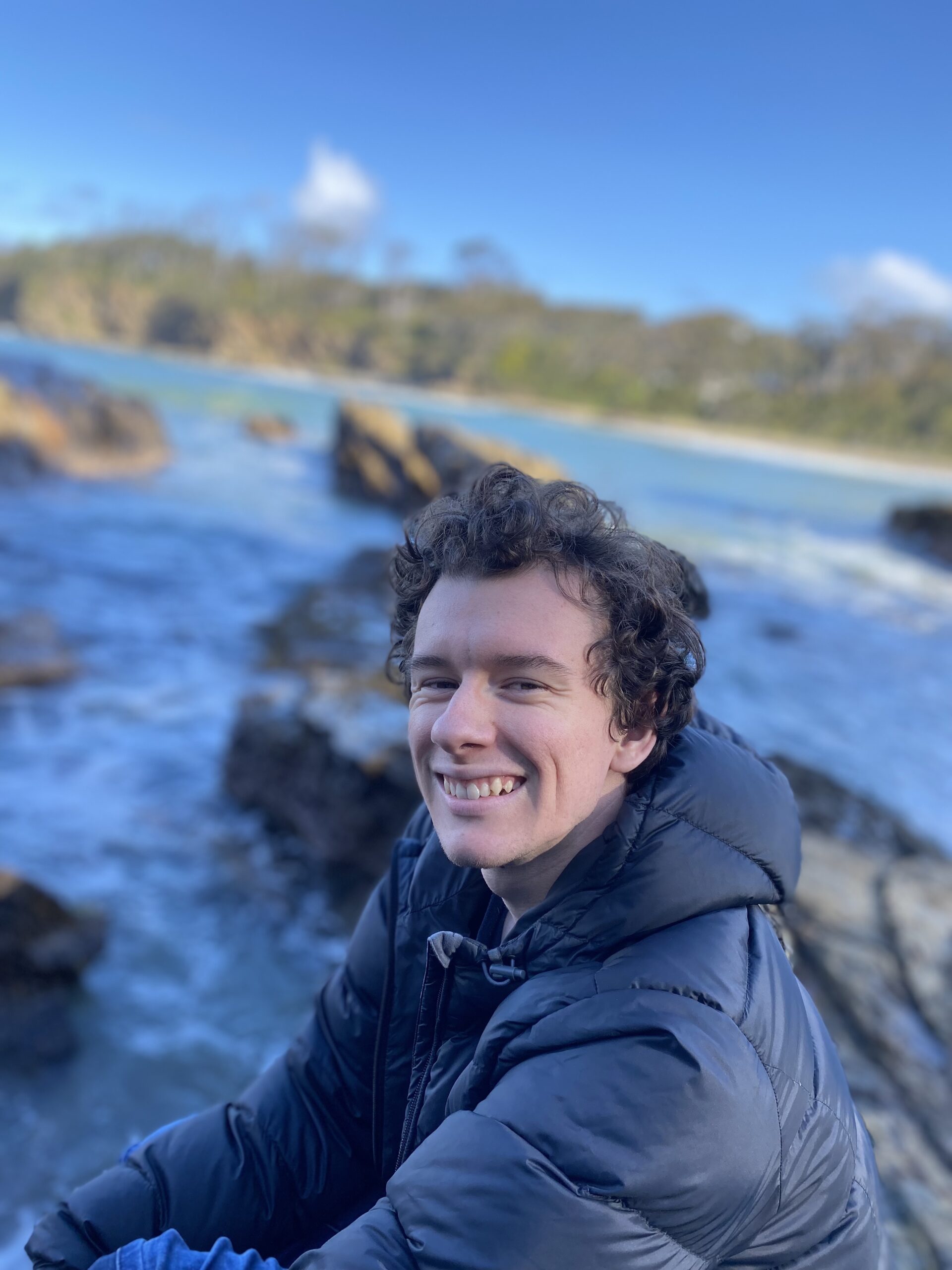Lake Toba: The Hidden Wonder of Indonesia
The past few days, I had this as my view (all for about $25/night):

I realise, typing this now, that it doesn’t look like much – in fact, it looks rather like a dead garden at the front with the bin – but the main point was actually that I had this beautiful view of the lake in front of me. Lake Toba was created when a volcano (Mount Toba) exploded over 70,000 years ago. In fact, it was one of the largest volcanic eruptions in history (that we know of) and is even thought to have caused or exacerbated an ice age, which impacted the human population size. Very interesting, but now Toba is totally dormant, with no risk of exploding. Instead, the eruption now caused this beautiful inland lake to form, which is now a somewhat popular tourist destination.
Interestingly, the vast majority of tourists to come to Toba seem to be Indonesians, and then there was a surprisingly large number of Europeans there (there was Swiss themed pub on the island where I had dinner once, and seemingly ran into every European tourist on the island). The island itself feels touristy in the same way Bali did to me, but it was far quieter and not as developed. For example, most of the restaurants are still local family-run places, and the idea of the Starbucks-esque shop coming in has not quite reached here. Having said that, all the restaurants have adapted to serve both Western and Indonesian food.
Why did I come here? I had the choice between here and Bukit Lawang, which is one of the few places where you can see wild orangutans. I decided against Bukit Lawang for a few reasons. First and foremost, this isn’t a holiday (as much as it can sometimes feel like one at times), and I had heard of Batak culture on Samosir island (where I stayed), including music. I thought this had the best chance of potentially leading to something down the road. Second, I hadn’t had a lot of the more rural-focused vaccines, and Bukit Lawang is deep in the jungle. Third, I was worried about hiking with my foot. And finally, it’s just pretty expensive, and I decided it would be better to come back better prepared, maybe with friends or family, and do it properly. This eventually led me to Lake Toba. To get there, I took a bus from Medan, which took 5 hours, and then caught a ferry, which took another hour. Fortuitously, I ran into some musicians on the ferry, who invited me to their gig on Saturday night, which was great!
The Batak people are the local people of Samosir and surrounds. Many of the buildings there are still built in traditional styles, and there is still a strong presence of Batak culture. This also reminded me of the Balinese Hindu culture, and indeed, Samosir felt like how I imagined Bali must have been like 50 years ago – a reasonably popular tourist destination, but not overcrowded. Batak language is still used (though the locals will also happily speak Indonesian, thankfully).
I booked a tour guide on the last day I had there to go on a motorbike tour around the island. The guide, Martin, is a Batak man who gladly shared his culture with me, and even attempted to teach me some Batak by getting me to repeat words after him. Unfortunately for me, I think he was getting me to say some quite funny things based on his and other locals reactions! Martin showed me the local museums and cemeteries, and I even partook in a Batak dance. When I went to the gig of the musicians I met on the ferry, I saw a modernised music. The musicians sung in Batak, but played acoustic guitars, bass, and drums. Simultaneously, one band member would play a traditional Batak flute into the microphone. They would intersperse traditional Batak songs with modern English songs (like Stand By Me). This has seeded an idea for me about a research project about such modernisation, but I am not sure when I will return to that!
Samosir and Lake Toba is one of the Indonesian government’s five “super priority” tourist destinations – places the government wants tourists to travel to that aren’t Bali. To this end, I read that they are planning to make it more accessible via airports than it is now; for example, by expanding the railway line to it. I think this is a brilliant idea, because this is an amazing spot and I can’t wait to return one day. Simultaneously, I would hate for Batak culture to end up hidden behind an overdeveloped tourist paradise.
